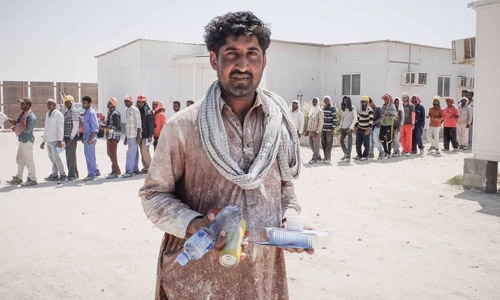7 out of 10 Gulf expats have no pension: Study
Manama : Nearly 7 out of 10 people in Bahrain and remaining GCC countries do not have any form of pension or guaranteed savings, a study reveals.
The study conducted by Guardian Wealth Management has found that the Gulf has the highest number of residents in the world that do not have any form of retirement funds. In fact, 64 per cent of Gulf expats have no savings for the future.
The study implies that this was the result of the absence of a pension system in place for expats coupled with the fact that the majority of expats are young who often is not worried about saving for the future.
“The outcome of this study is definitely in line with our expectations. Like most Gulf nations, there is no specific pension system for expats in Bahrain. Foreign nationals are meant to depend upon end of service indemnity or gratuity which undoubtedly is not enough for people and families to maintain their lifestyle,” said Ebrahim K. Ebrahim, Chief of Government Business and Communications at Takaud, a leading Wealth Management Services in the Kingdom. Ebrahim added that the phenomenon was also a result of the lack of saving culture among expats and locals. He said that even pension systems for locals were registering actuarial deficits, which refers to a situation in which the social security system’s summarized income rate is lesser than the evaluated cost rate.
The results derived after getting responses from 2000 respondents showed that Asia had the lowest pension coverage in the world. Only 14.49 per cent people in North America are not covered by pensions while the corresponding numbers stand 44 per cent and 61 per cent in Europe and Asia, respectively.
Takaud experts suggest that these striking differences in percentages can be attributed to the fact that expats account for a large portion of the MENA region’s population. They explain that such nationals are drawn to the region for better opportunities and standards of living but often overlook the fact that they do not have any set funds for their future.
To tackle the situation, Ebrahim pressed upon a need for expats to take their future planning in their own hands. He said: “Future savings are a big responsibility and should not be taken lightly. The older a person gets, the harder it is to save for the future. Expats should start early and must take financial assistance in terms of asset-management and investment where necessary.”
Related Posts

